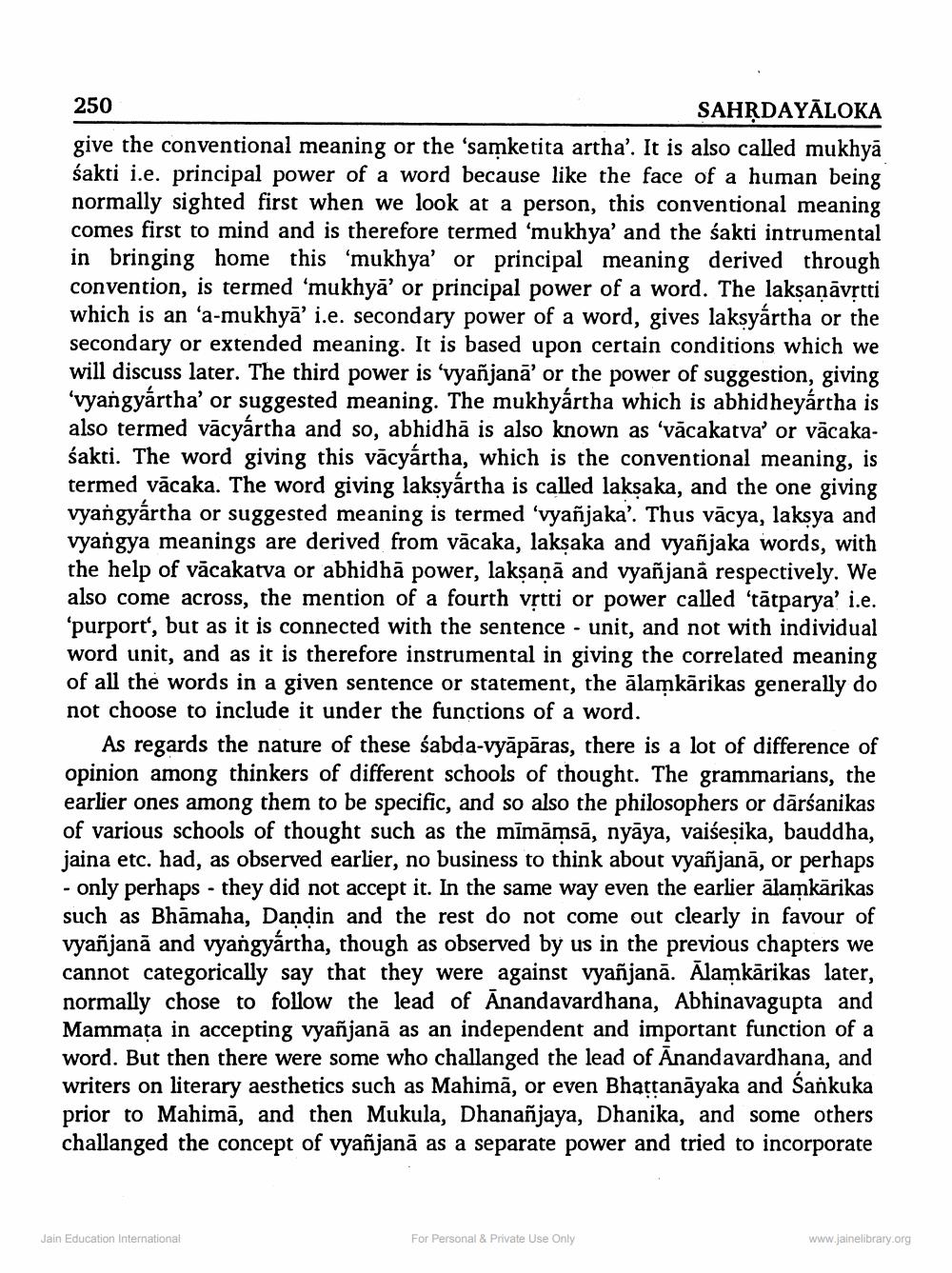________________
250
SAHRDAYĀLOKA give the conventional meaning or the 'samketita artha'. It is also called mukhyā Śakti i.e. principal power of a word because like the face of a human being normally sighted first when we look at a person, this conventional meaning comes first to mind and is therefore termed 'mukhya' and the sakti intrumental in bringing home this ‘mukhya' or principal meaning derived through convention, is termed 'mukhyā' or principal power of a word. The laksanavrtti which is an 'a-mukhyā' i.e. secondary power of a word, gives laksyártha or the secondary or extended meaning. It is based upon certain conditions which we will discuss later. The third power is 'vyañjanā' or the power of suggestion, giving 'vyangyártha' or suggested meaning. The mukhyártha which is abhidheyártha is also termed vācyártha and so, abhidhā is also known as 'vācakatva' or vācakaśakti. The word giving this vācyártha, which is the conventional meaning, is termed vācaka. The word giving laksyártha is called laksaka, and the one giving vyañgyártha or suggested meaning is termed 'vyañjaka'. Thus vācya, laksya and vyangya meanings are derived from vācaka, laksaka and vyañjaka words, with the help of vācakarva or abhidhā power, laksanā and vyañjana respectively. We also come across, the mention of a fourth vrtti or power called 'tātparya' i.e. 'purport', but as it is connected with the sentence - unit, and not with individual word unit, and as it is therefore instrumental in giving the correlated meaning of all the words in a given sentence or statement, the ālamkārikas generally do not choose to include it under the functions of a word.
As regards the nature of these sabda-vyāpāras, there is a lot of difference of opinion among thinkers of different schools of thought. The grammarians, the earlier ones among them to be specific, and so also the philosophers or dārśanikas of various schools of thought such as the mīmāmsā, nyāya, vaišesika, bauddha, jaina etc. had, as observed earlier, no business to think about vyañjanā, or perhaps - only perhaps - they did not accept it. In the same way even the earlier alamkarikas such as Bhāmaha, Dandin and the rest do not come out clearly in favour of vyañjanā and vyangyártha, though as observed by us in the previous chapters we cannot categorically say that they were against vyañjanā. Alamkārikas later, normally chose to follow the lead of Anandavardhana, Abhinavagupta and Mammaţa in accepting vyañjanā as an independent and important function of a word. But then there were some who challanged the lead of Anandavardhana, and writers on literary aesthetics such as Mahimā, or even Bhattanāyaka and Sankuka prior to Mahimā, and then Mukula, Dhananjaya, Dhanika, and some others challanged the concept of vyañjanā as a separate power and tried to incorporate
Jain Education International
For Personal & Private Use Only
www.jainelibrary.org




